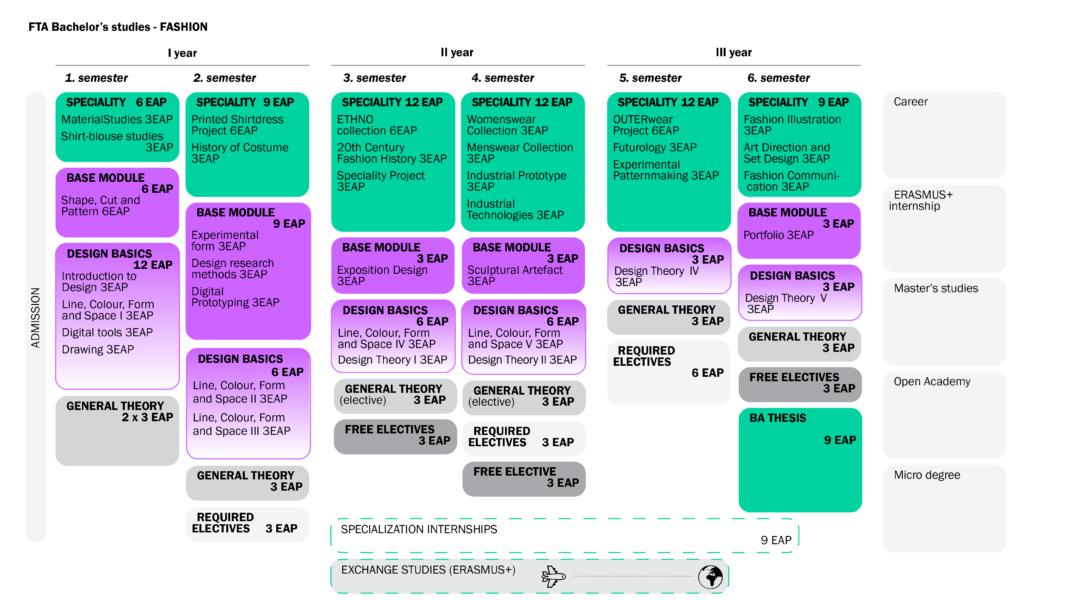Bachelor’s studies

Fashion is one of the three specializations (study directions) in the BA joint curriculum “Fashion, Textile and Accessory Design“.
The entrance exams are the same for all specializations. In the first semester, students from all specializations mostly study together. An introduction to the specialization as well as drawing, color theory, composition, design theory, and digital skills are taught. From the second semester the studies become specialization-based, but some subjects are conducted jointly. The joint curriculum provides a unique opportunity (often missing in many universities) to explore approaches, materials, technologies, and workshops of other specializations, and to integrate them in the creative process. It is also possible to use different workshops (such as wood, metal, glass, graphic design, etc.) and collaborate with other departments both in the Faculty of Design and others in the academy at large.
The first part of the bachelor’s degree program focuses on gaining knowledge of materials and technologies, understanding the design process, and developing communication skills in both words and images. Students also acquire proficiency in various necessary computer programs (including Adobe Illustrator, Photoshop, Fusion, and CLO3D). The program then gradually teaches students to work with creative ideas until the development of a functional prototype or the production of a design product. Depending on the stated problem, work may be carried out individually or in groups. Fashion projects focus on both classical collection creation and conceptual clothing design. The program also values the systematic integration of sustainable philosophies, and many of the specialized projects are interwoven with relevant information. The final part of the program includes specially adapted projects that focus on substantive design problems and support the completion of the Bachelor’s thesis. Students learn to playfully apply the knowledge and technical skills they have already acquired to develop unique techniques or concepts. Interdisciplinary electives, theoretical courses, and internships are also important parts of the program, all of which help shape the student’s profile as specifically as necessary. The three-year Bachelor’s program culminates in the preparation of a portfolio and defense of the final project. The portfolio allows students to make sense of their skills, present themselves competently, and position themselves in the design landscape, while the Bachelor’s thesis brings out their uniqueness.
What skills are acquired?
- Problem-solving skills in design in the learned specialization and in a broader social and cultural context.
- Understanding the design process and acquiring specialized technologies, the ability to articulate and express one’s ideas.
- Collaboration skills with professionals in one’s own and other fields.
- Theoretical knowledge and practical skills of the specialization that enable one to work in a company or start one’s own business.
